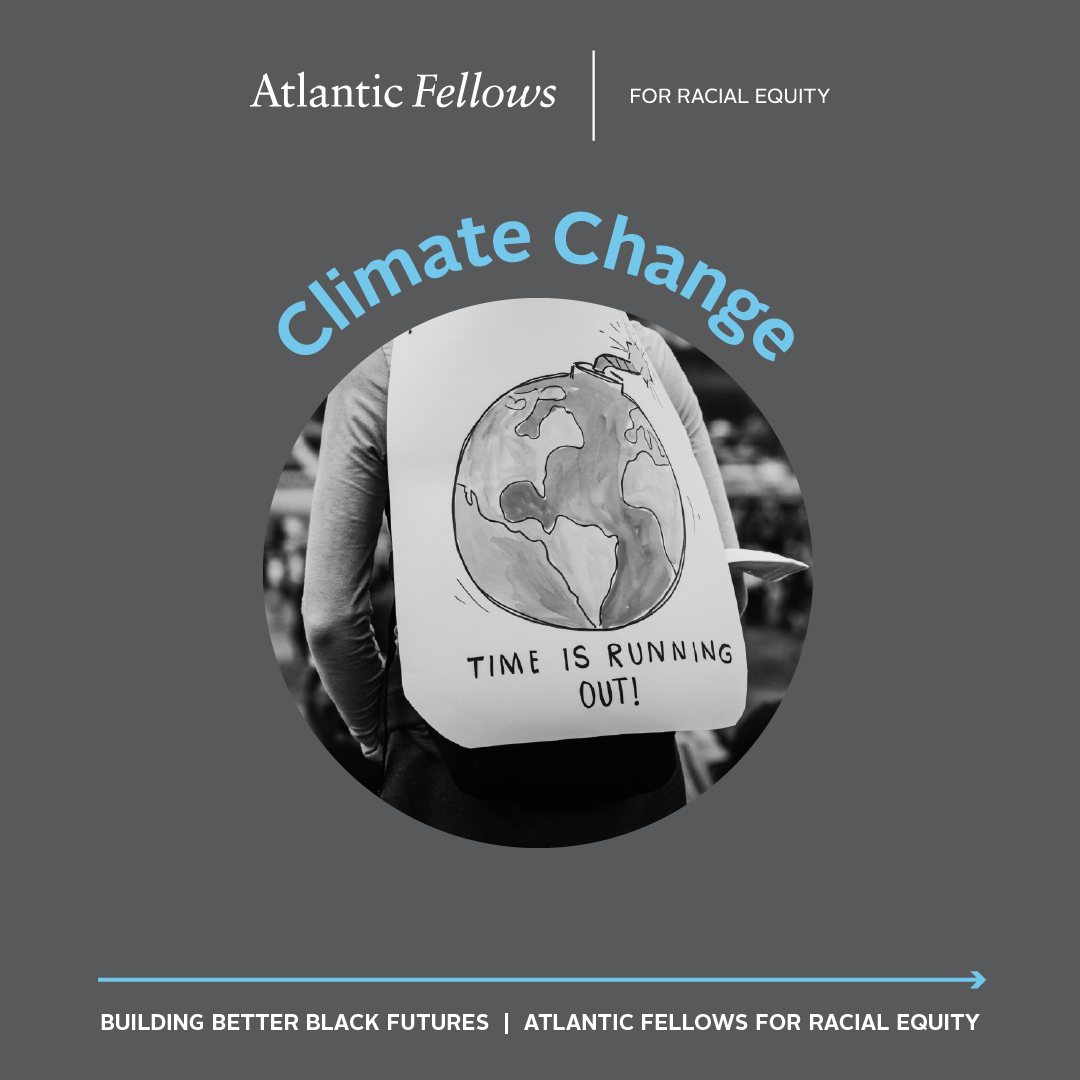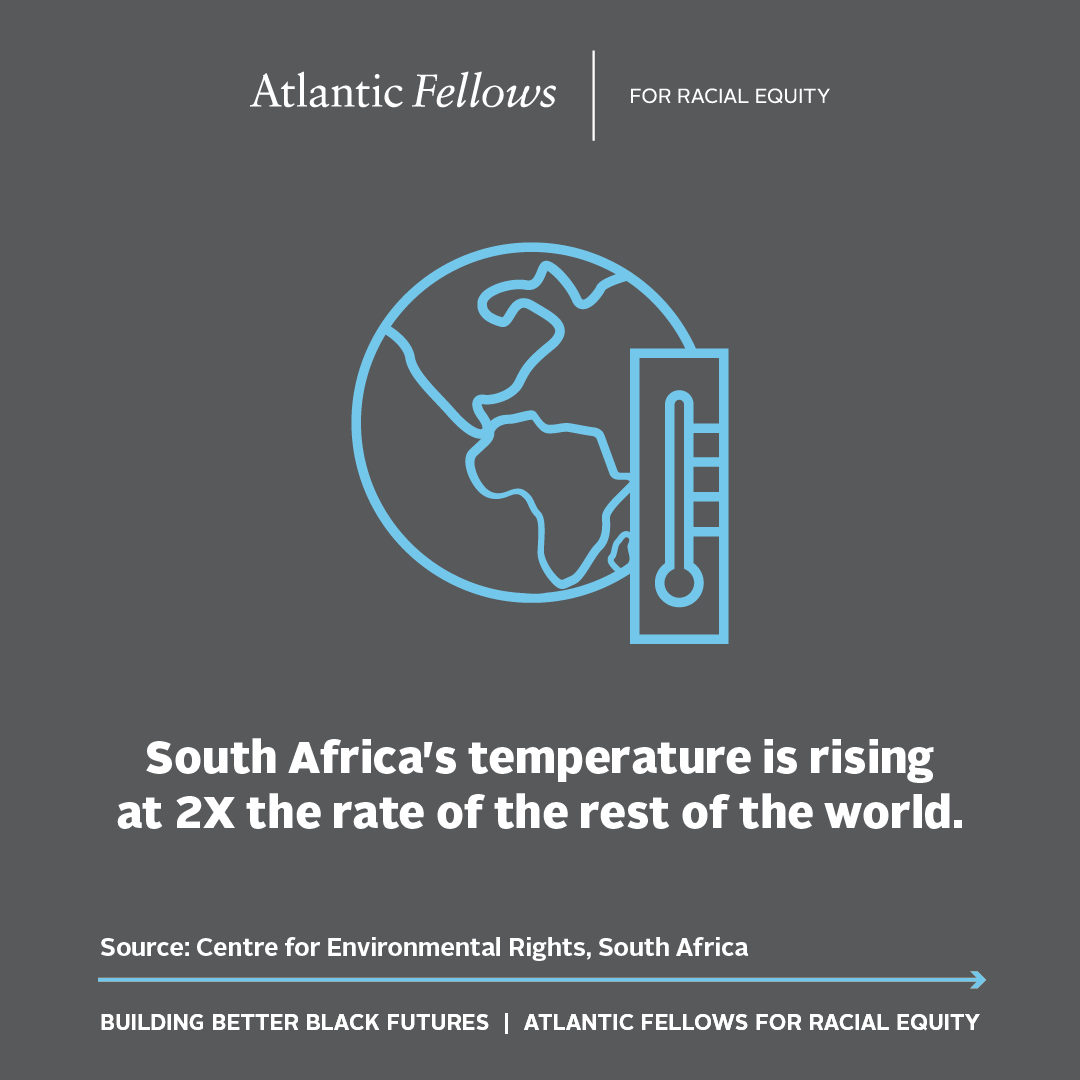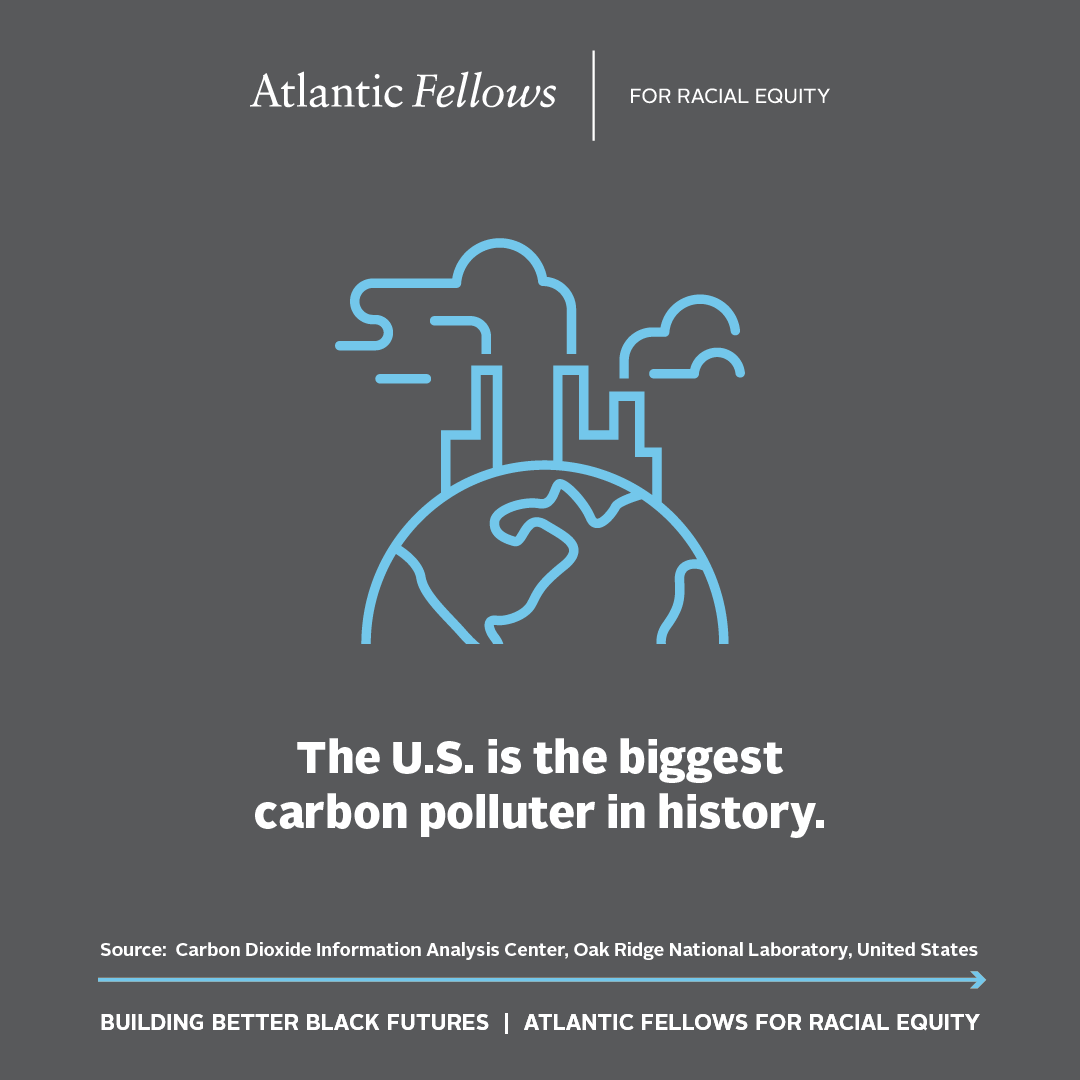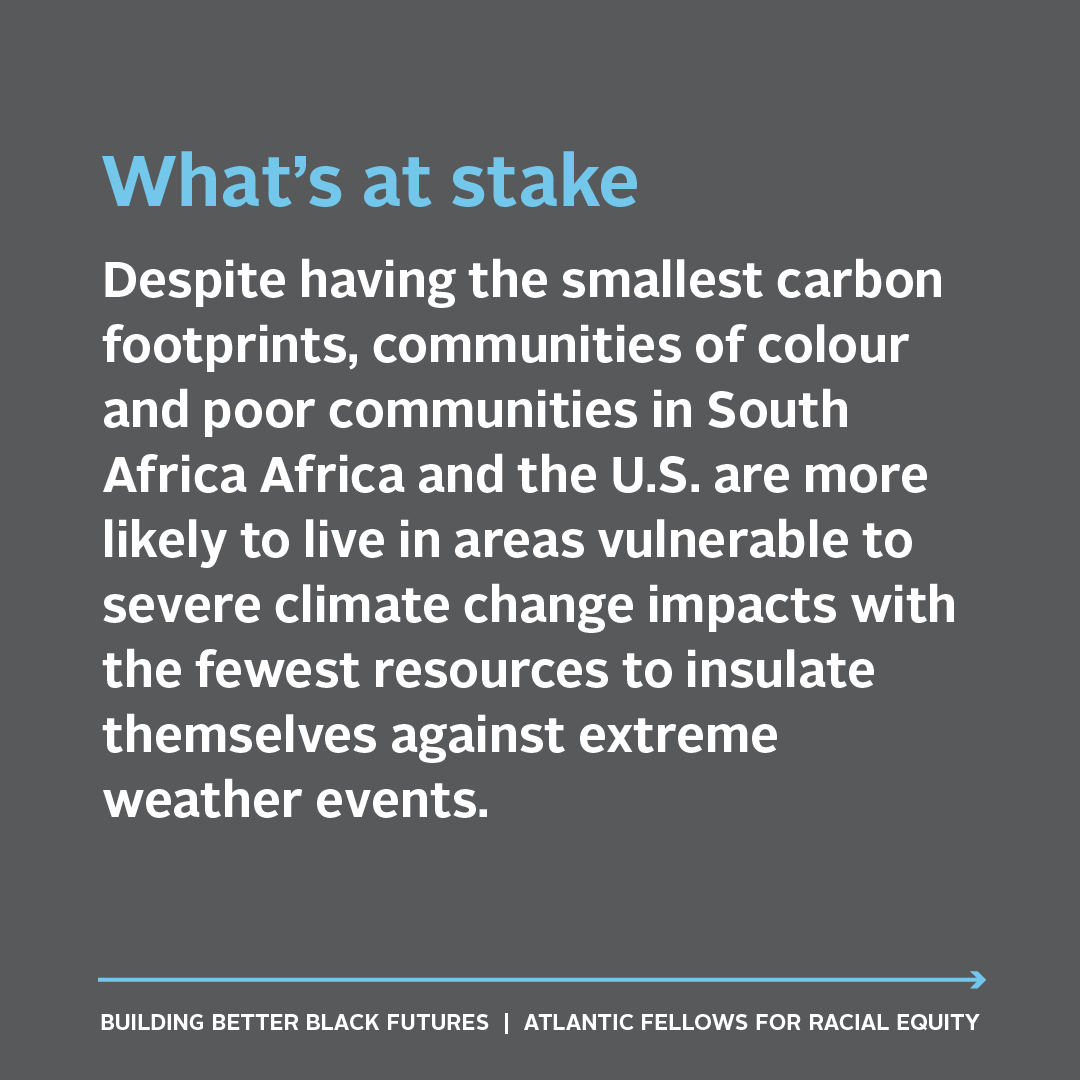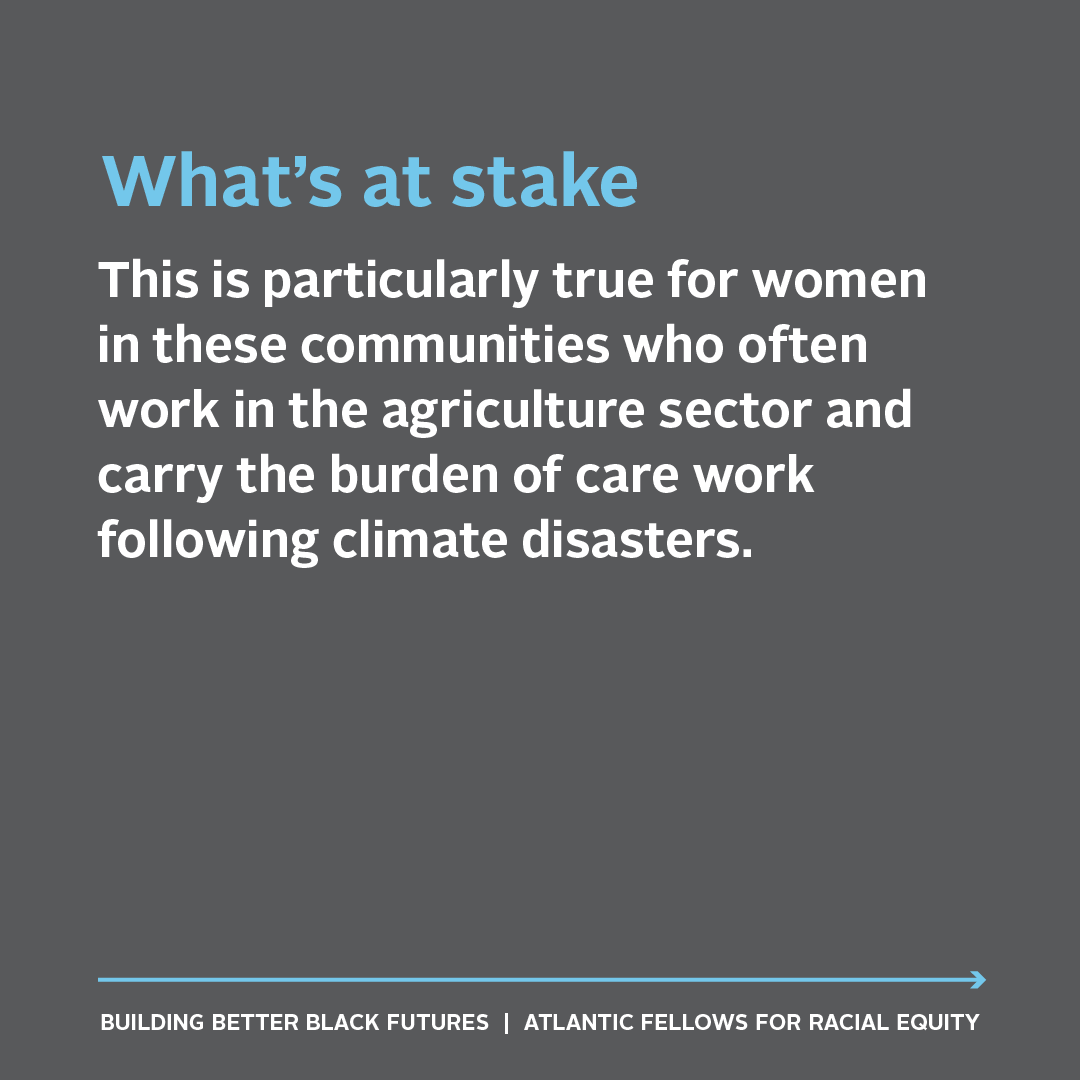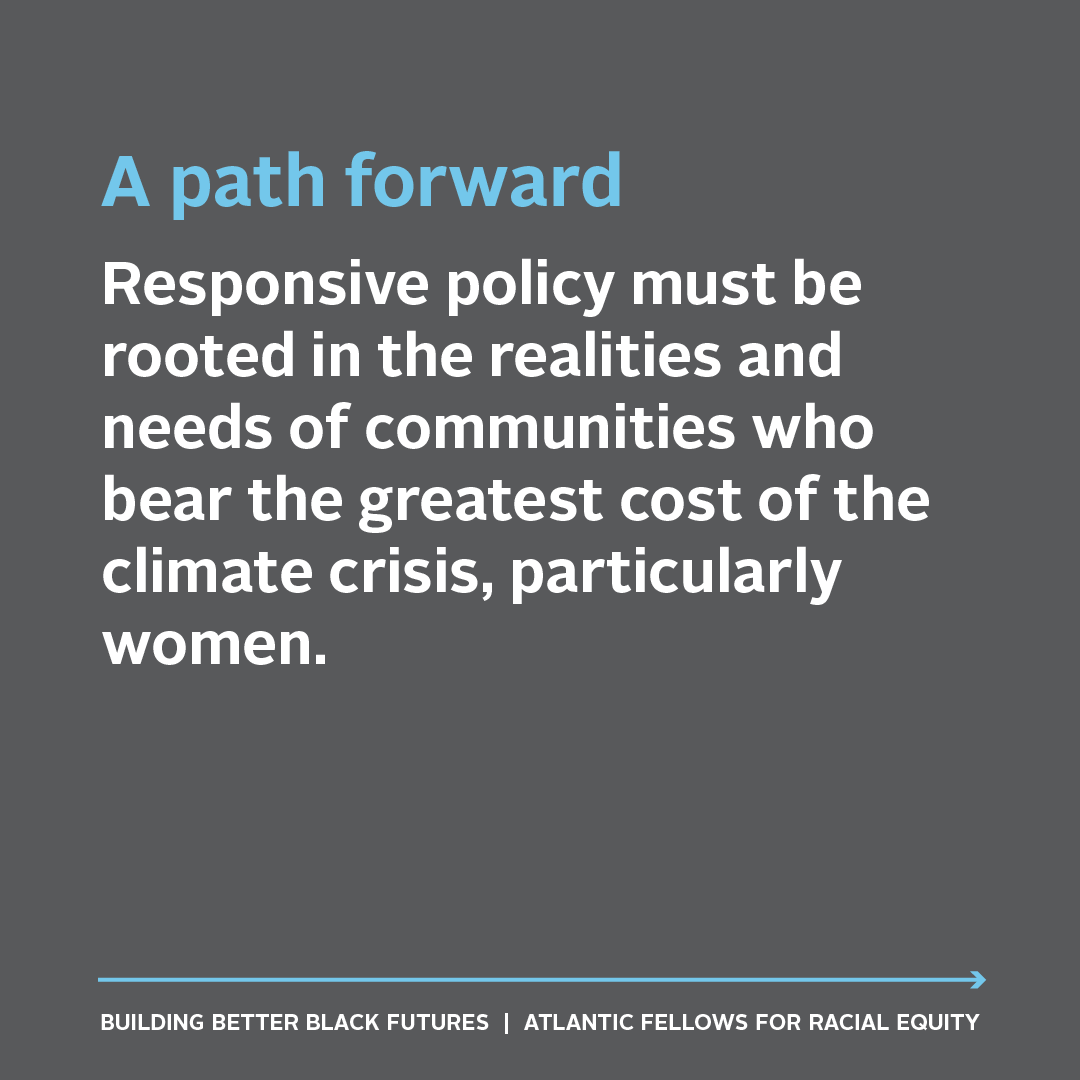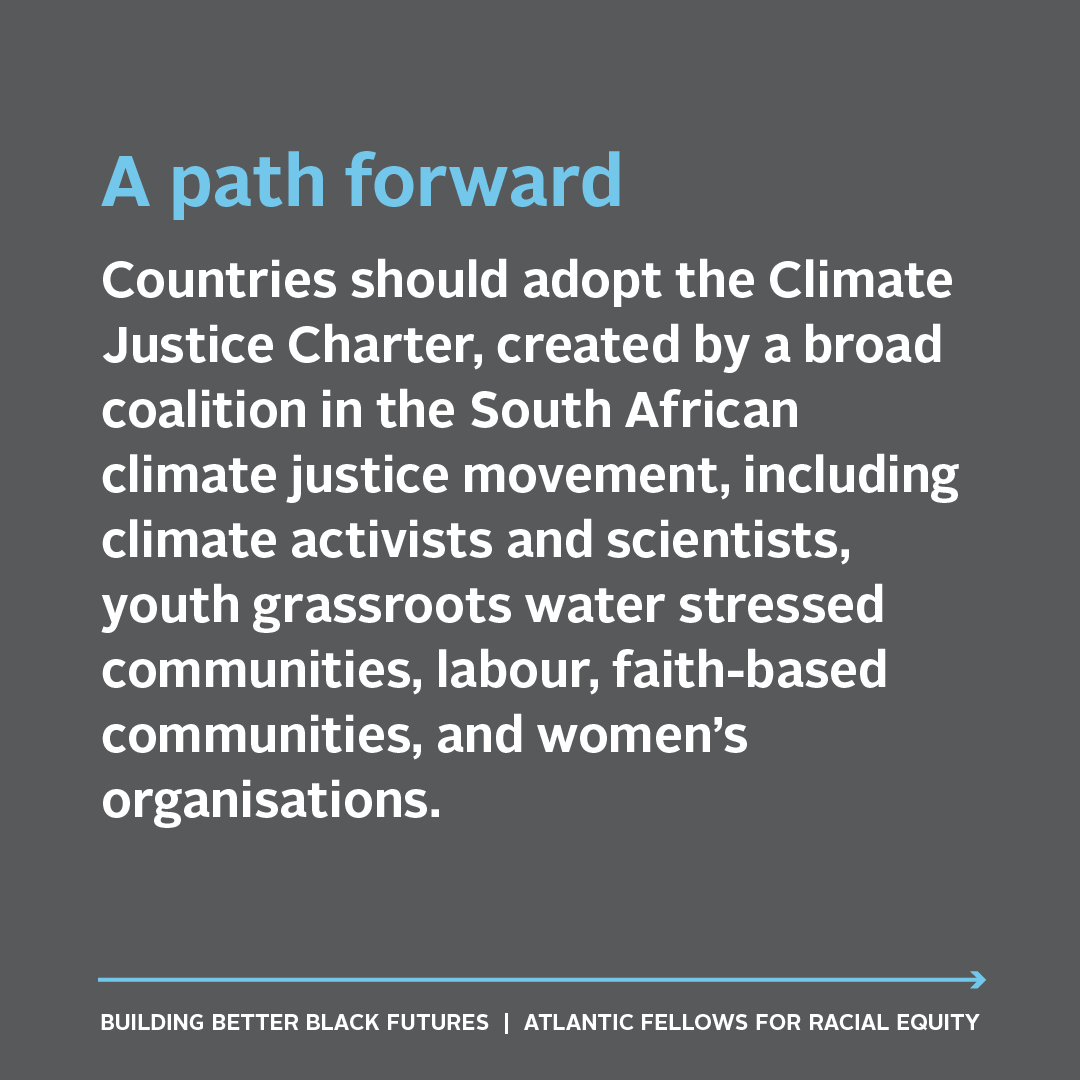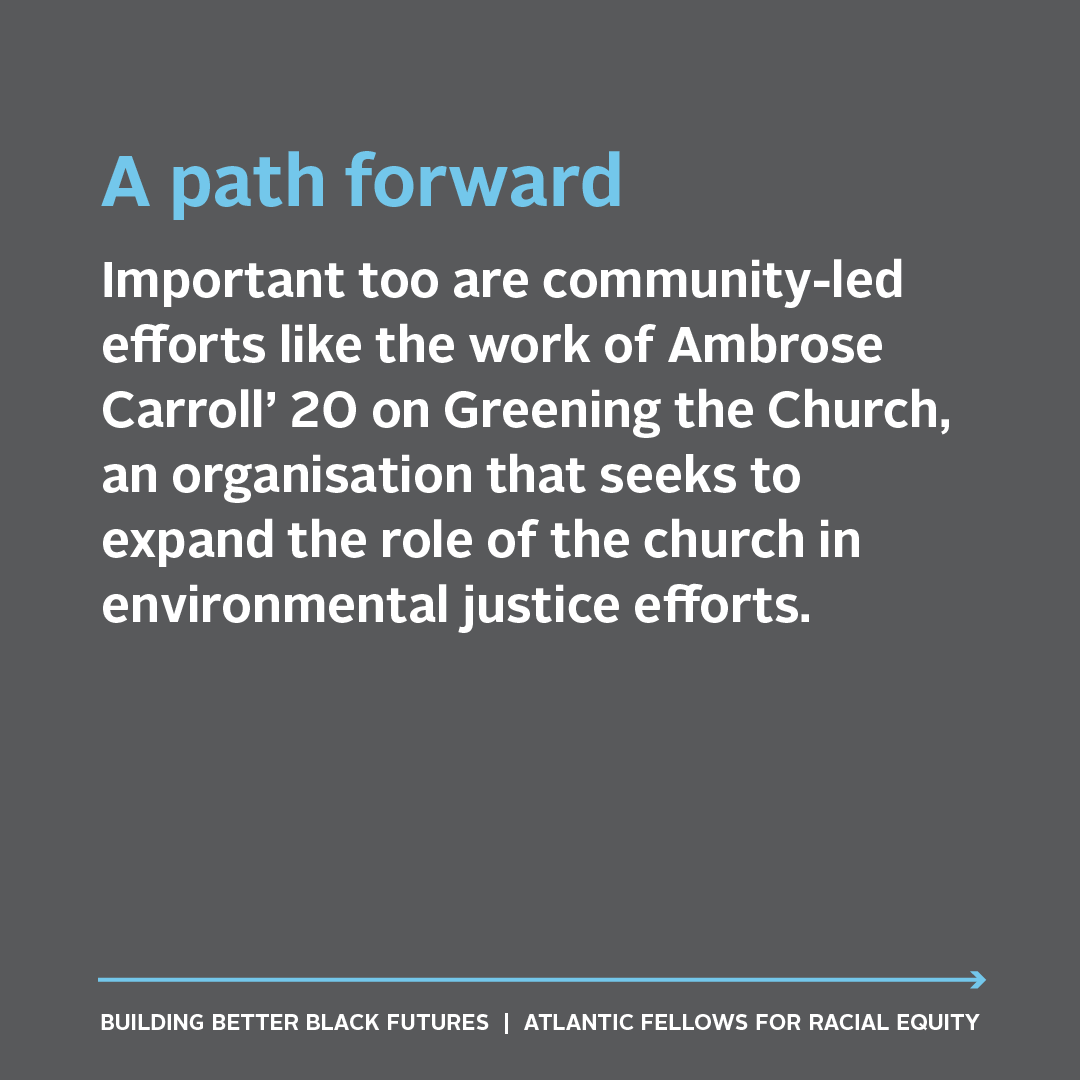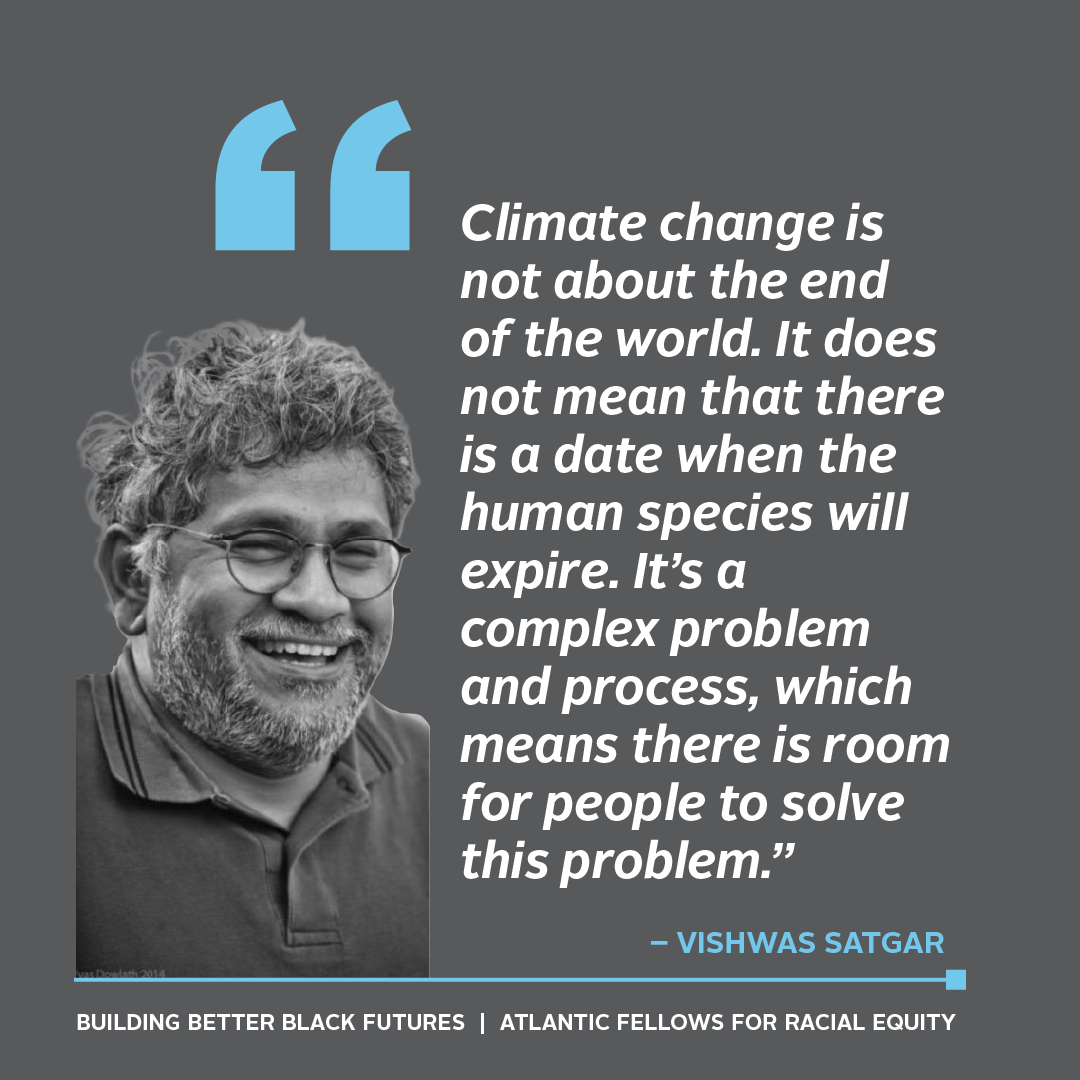A Just Climate Transition
Our world is seeing extreme weather events with increasing frequency. Since 2020, southern Africa, which had long been in the grips of a record-breaking drought, has seen cyclones ravage communities, particularly in Mozambique. Devastating wildfires have scorched parts of the Amazon, Australia and the U.S.’s west coast, severe flooding has occurred in western Germany and eastern Belgium, and hurricanes tore through communities in New Orleans and Kentucky.
Families and communities, particularly people of colour, have been devastated by these events. For instance, farming communities at the heart of the drought in South Africa are facing loss of work. Many are also in the throes of an ongoing hunger crisis.
Similarly in the United States, communities of colour are more likely to face the dire consequences of our shifting climate. A recent analysis by the U.S. Environmental Protection Agency found that Black people are 40 percent more likely than other communities to live in places where extreme temperatures, driven by climate change, will result in higher mortality rates. The report also found that Native American and LatinX people are more likely to be affected by extreme temperatures where they work.
These negative impacts are often doubly so for women of colour. For instance, much of the work in the agriculture sector in South Africa is done by women. They also engage in the lionshare of care work in the aftermath of extreme climate events. It’s why Dorah Marema’19 argues that “there can be no climate justice without gender justice.”
Vishwas Satgar of the Climate Justice Charter Movement (CJCM) in South Africa believes meaningful climate justice policy must stem from the realities and needs of the most vulnerable communities, those who have made the smallest contribution to climate change yet are seeing the worst impacts.
The CJCM’s Climate Justice Charter lays out key principles for climate policy in South Africa, among them the creation of water commons, equitable access to housing, and clean energy transport systems.
Importantly, “climate change is not about the end of the world. It does not mean that there is a date when the human species will expire,” Satgar said at the 2020 presentation of the Charter. “It’s a complex problem and process, which means there is room for people to solve this problem.”
“There are answers [to the climate crisis]; there are alternatives,” Satgar said in a 2021 interview with Radio 786. “We need political will.”
The call for greater political will echoes across the global climate justice movement, despite the failure of COP26, the 26th United Nations Climate Change conference, to fulfil its potential to meet the urgency of the moment.
Indeed, activists are continuing to pursue every avenue available. For Dorah Marema’19, hope springs from the agency of communities, as evidenced in the work of Ambrose Carroll’20 and his colleagues and partners at Green the Church to engage churches as centres for environmental and economic resilience.
Learn more:
Climate Justice Charter; South African Food Sovereignty Campaign; Green the Church; United Nations Climate Reports
Lead Image by Tobias Rademacher/Unsplash
This piece is part of our 2022 Policy Slate for Racially Equitable Futures. Click here to visit the summary page and explore other issues.


